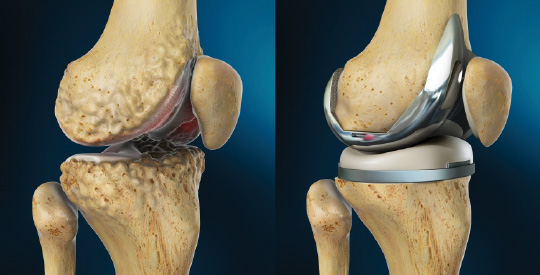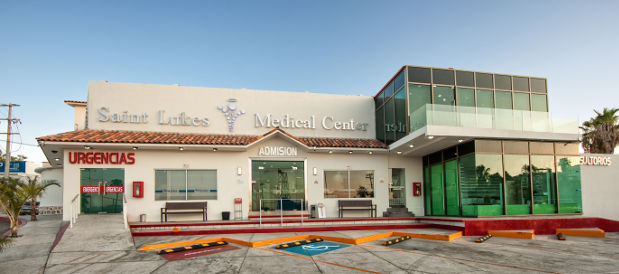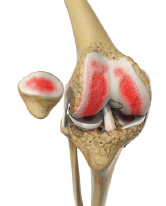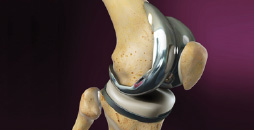
Emergencies 24 hrs.
+ 52 (624) 142 5911

Info@saintlukeshospitals.com
THE LEADING HOSPITAL GROUP FOR HEALTH CARE AND MEDICAL TOURISM IN LOS CABOS, MEXICO












MEDICAL SPECIALTIES
Knee Replacement

Educational Video
Total Knee Replacement

Saint Luke’s Hospital is part of the Saint Luke’s Hospital Group, providing top quality medical care to the local community in Los Cabos for more than 12 years.
The hospital has state-of-the-art equipment and facilities and the surgeons have been carefully selected from some of the best surgeons in Mexico, all board certified with specialty licenses in their field of expertise.
Saint Luke’s is committed to being the premier hospital group for health care and medical tourism in Mexico.
SAINT LUKE'S Travel Price
Save over 65% on prices in the United States.
 Knee replacement surgery is the most common joint replacement procedure, and the success rates are reliably very high. Knee replacement surgery may be considered if you have a painful knee that makes it difficult to perform the simplest of activities, and medicines and other treatments no longer relieve the pain.
Knee replacement surgery is the most common joint replacement procedure, and the success rates are reliably very high. Knee replacement surgery may be considered if you have a painful knee that makes it difficult to perform the simplest of activities, and medicines and other treatments no longer relieve the pain.
Surgery involves replacing the diseased knee joint with a synthetic implant, to repair the damaged surfaces that are causing discomfort. A mini-incision total knee replacement procedure is performed through an incision that is smaller than the incision used for the traditional total knee replacement surgery. This technique reduces blood loss and pain and allows for a shorter recovery. A total knee replacement surgery replaces all three segments of the diseased knee joint, and a partial knee replacement involves an implant in just one or two segments of the knee, retaining any undamaged parts. Progressive arthritis is the largest contributing factor to needing a knee replacement, but other conditions such as osteonecrosis and trauma may lead to a breakdown of the knee joint and create the need for knee replacement surgery.
Dr. Cristhyan Baruch Guzman heads up the Orthopedic Clinic at Saint Luke’s Hospital, and has extensive experience in total knee replacement surgery. He uses advanced state of the art equipment and the latest technology, and provides high quality prostheses at the most affordable prices.
Procedure
Surgery may be performed under general or spinal anesthesia. An incision is made at the front of the knee and the damaged parts of the femur bone and cartilage are cut away. The end of the femur is reshaped to allow a metal femoral component to fit in place. A metal component is attached to the end of the femur with bone cement. The damaged portion of the tibia bone and cartilage are cut away. The end of the tibia is reshaped to receive the metal tibial component. The metal tibia component is secured to the end of the tibia with bone cement. A polyethylene insert is attached to the metal tibial component. The insert will support the body’s weight and allow the femur to glide over the tibia. The tibia, with its new polyethylene surface, and the femur, with its new metal component, are put together to form a new knee joint. To make sure the patella (the knee cap) glides smoothly over the new artificial knee. its rear surface is prepared. A polyethylene component is cemented into place on the back of the patella. The new parts of the knee joint are tested by flexing and extending the knee.
After surgery a large dressing is placed on the knee and drainage tubes are placed to help drain excess fluids from the joint for several days following surgery. The average hospital stay is usually 3 to 5 days. Many patients can resume normal activities within 4 to 6 weeks.
The surgeon may use minimal invasive surgery to perform the procedure without making a large incision. This requires a much smaller incision, with less tissue damage and may result in less pain and a shorter recovery time. You can discuss this procedure with your surgeon to decide if you are a suitable candidate for minimal invasive surgery.
Risks
As with any procedure there are risks associated with knee replacement surgery. The following is a summary of the most common risks and complications.
• Infections requiring antibiotics and in some cases hospitalization
• Blood clots in the legs which can cause pulmonary embolism
• Injury to nerves and blood vessels
• Chronic knee pain and stiffness of the knee
• Normal risks of general anesthesia.
Risks can be minimized by following the surgeon's instructions before and after surgery.
This information should be used only as a guide to your medical procedure. All specifics will be discussed with your surgeon at your consultation. For more information about our packages for knee replacement surgery at Saint Luke's, contact us by using the attached “Ask a Question” form.


Dr. Cristhyan Baruch
Orthopedic Surgeon
Dr. Julio Cesar Cortes
Orthopedic Surgeon
Hip Replacement
John M. Brandt — Oregon
I have been coming down to Cabo … More

Fellowship in Hand Surgery
… More
Has extensive experience
… More
Meet the Surgeons
Patient Testimonials
Orthopedic
Sue C. — Westlake Village, California
While vacationing in Cabo San Lucas … More
Ask a Question
Get Information or a Quote on the service or medical procedure of interest to you.
Contact Us:
San José del Cabo B.C.S.
Calle Ignacio Zaragoza S/N, Col. Centro
+52 (624) 142 5911
Cabo San Lucas, B.C.S.
Calle Aguajitos Fracc. C Lote-12, Col. Arcos del Sol.
+52 (624) 143 0911
Saint Luke’s Hospitals ®
All Rights Reserved 2015


